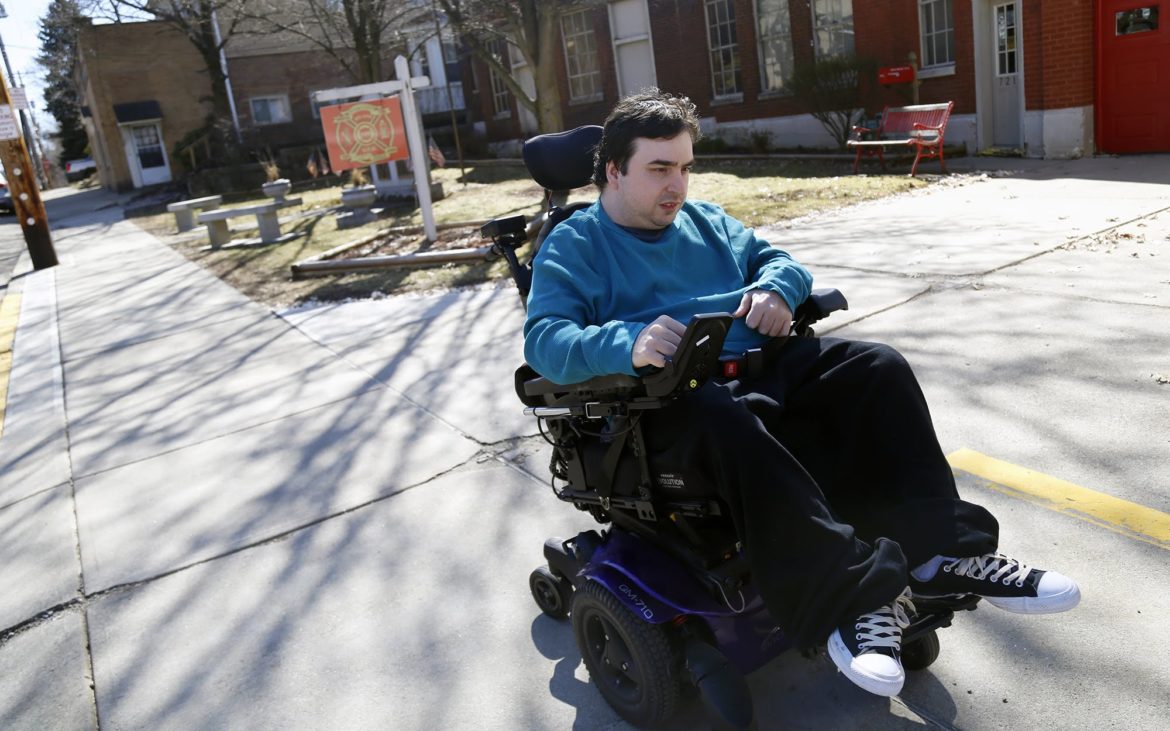
While visiting Chicago last year, wheelchair user Jill Constantin ordered an Uber for a ride from a comedy show. She and a friend wanted something faster than a 25-minute bus ride.
“It was a good experience,” said Constantin, 35, who lives in a suburb of Pittsburgh. “Something you can’t do here in Pittsburgh.”
In the Pittsburgh region, neither Uber nor Lyft, its competitor in the ride-share industry, accommodate passengers who use non-folding or motorized wheelchairs. Although Uber said its drivers are expected to accommodate riders with folding wheelchairs, walkers or canes, the company does not offer WAVs for passengers who remain in their wheelchairs for the ride.
So while Pittsburgh is a proving ground for autonomous cars — the next leap ahead in the ride-sharing industry — wheelchair-using customers who try to call a driver with their smartphone apps are left waiting on the curb.
On March 4, Pittsburgh Mayor Bill Peduto announced what the city calls transformative policies for the testing of autonomous vehicles. The policies focus on transparency, reducing environmental impacts and promoting lower cost and equitable transportation options. They do not specifically address wheelchair accessibility, though Uber did discuss the issue with Pittsburgh officials last year. So far, its operations haven’t changed.
READ ENTIRE ARTICLE AT:
https://www.publicsource.org/in-cities-like-philly-wheelchair-users-can-easily-hail-an-uber-or-lyft-not-in-pittsburgh/